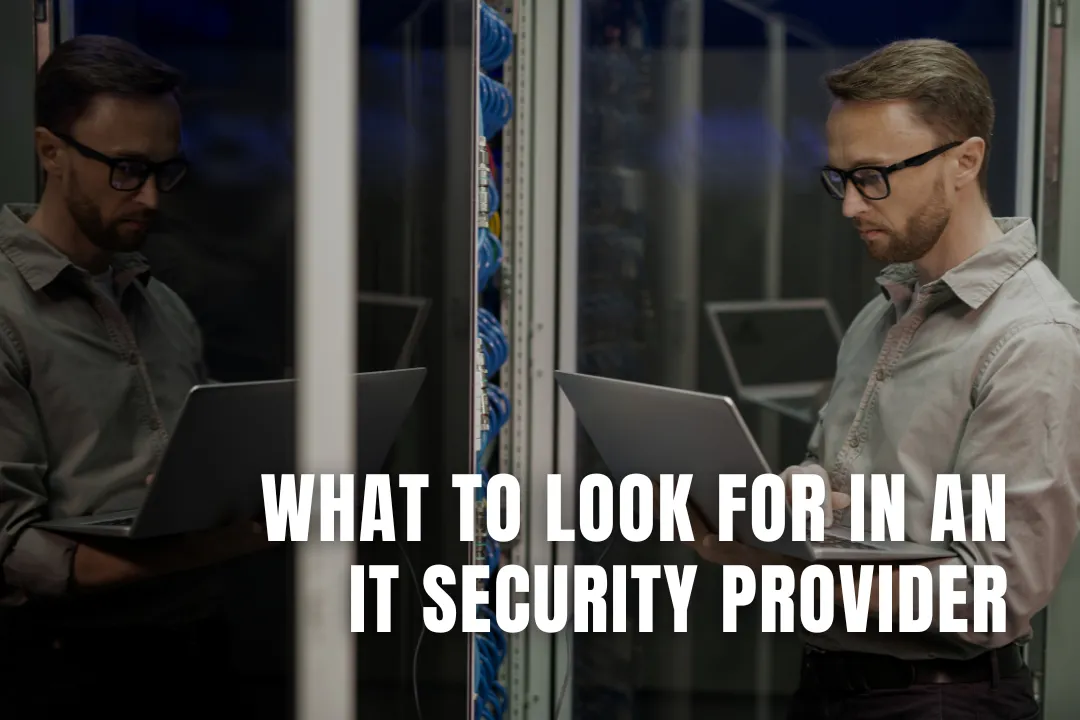
Cyberattacks are becoming more intelligent and frequent. Small mistakes in IT security can lead to significant problems like data breaches, financial loss, or harm to your business's reputation. Even businesses with basic protections often feel unready for advanced threats.
A recent study showed that 43% of cyberattacks target small businesses. This demonstrates that no company is too small to become a target for hackers. The right security provider can protect your business from these dangers while helping you avoid compliance challenges. This blog will guide you in choosing an IT security provider that meets your needs. You’ll learn which services are most important and how to identify a reliable partner for long-term protection.
Every business has different data security risks. A small marketing agency may face phishing scams, while a financial firm could battle advanced hacking attempts. Identifying your threats is half the effort. Understanding your vulnerabilities is like securing doors before intruders try to enter.
Review the sensitive information your company manages daily. Client records, employee details, or transaction logs might appeal to cybercriminals. Determine which systems are essential for operation and ask yourself what would disrupt work if compromised. Concentrating here ensures resources protect the most important assets first.
Look for providers with a strong history in addressing intricate security challenges. Their capability to adjust and anticipate future needs can make all the difference.
IT security providers must understand the specific challenges of your industry. A healthcare business encounters different threats compared to a financial firm or retail company. An ideal provider offers expertise about regulations like HIPAA for healthcare or PCI DSS for payment processing, ensuring proper data protection and compliance. For example, IT management from Haycor demonstrates how industry-aligned cybersecurity services can help businesses meet compliance standards while addressing field-specific threats.
Specialized knowledge aids in identifying weaknesses particular to your field. For example, manufacturing companies require robust defenses against intellectual property theft, while e-commerce businesses need advanced fraud detection systems. Providers experienced with these details deliver personalized solutions tailored to your sector's risks and requirements.
Industry-specific knowledge is important, but technical certifications hold equal significance. These credentials demonstrate a provider’s expertise and ability to manage your cybersecurity needs.
Credentials aren’t just achievements; they establish confidence in their skills and service quality!
Seek services that protect your business from cyber threats before they occur. Ensure the provider responds promptly when issues arise.
Cybersecurity threats grow daily, and businesses must act fast to stay protected. Effective threat detection and prevention shield your network and data from constant risks.
Effective IT security combines vigilance, technology, and expertise without overlooking critical details that stop hackers at the gate.
A solid incident response plan is essential for protecting your business. It reduces harm, restores systems swiftly, and strengthens defense against threats.
Effective incident response can make all the difference between order and chaos during unexpected events like cyberattacks or data breaches.
Meeting security regulations isn't just about ticking boxes; it's about protecting your reputation. Pick a provider who knows the rules inside and out.
Adhering to regulatory standards keeps your business compliant and avoids costly penalties. A competent IT security provider must understand laws like GDPR, HIPAA, or CCPA. They should customize data protection practices to align with these regulations.
Regulations differ across industries. Providers need demonstrated expertise in fulfilling compliance requirements specific to your sector. Their services should include audit support and tools for monitoring the ongoing compliance status effectively.
Regulations prioritize secure systems, but adopting a zero-trust architecture enhances internal defenses. This model assumes no user or device is trustworthy by default. It demands strict verification for every access attempt, limiting potential data breaches.
IT security providers offering zero-trust strategies ensure tighter control over sensitive information. They use tools like multi-factor authentication and least privilege policies to block unauthorized access. Continuous monitoring also identifies unusual activities before threats spread further.
Businesses reduce risks when this framework integrates with cloud services and network security measures. Providers experienced in zero-trust design create layered protections that suit specific industries. Investing in such a solution strengthens cybersecurity without relying solely on perimeter defenses.
Strong relationships take time to develop, and the same applies to partnerships with IT security providers. Seek a team that values listening as much as taking action.
A dependable IT security provider shows its proficiency with a record of successful results. Search for case studies or testimonials from businesses akin to yours. These offer concrete evidence of effectiveness in threat protection, incident response, and risk management.
Reputation carries significant weight in this field. Providers recognized for dependability often have long-term clients and favorable industry feedback. Their capability to manage cybersecurity challenges effectively fosters trust over time.
Strong communication builds trust. An IT security provider must explain solutions clearly without overwhelming you with jargon. They need to answer questions directly, offer updates promptly, and provide simple and clear reports on cybersecurity efforts.
Dependable support is equally critical. Fast responses during incidents can protect your business from severe damage. Look for a team offering 24/7 assistance and dedicated customer service representatives who understand your setup. A friendly, responsive approach shows they value your partnership.
Finding the right IT security provider isn’t just a task; it’s essential. Emphasize expertise, clear communication, and dependable support. Prioritize those who understand your business and its risks. A trustworthy partner will protect your data while ensuring you remain compliant. Make a careful choice to protect what matters most.